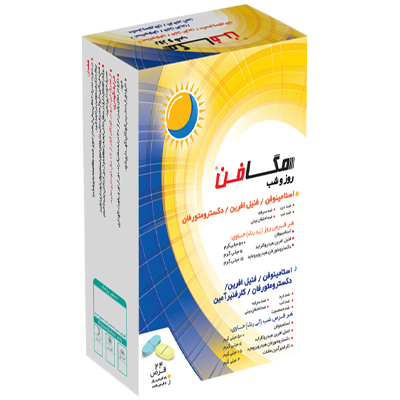Psoriasis, a chronic skin condition that often presents as silvery patches and scales on the skin, is more than just a medical issue; it also poses unique psychological and social complexities. When it comes to the sensitive and fateful topic of psoriasis and marriage, the disease poses not only physical challenges but also profound psychological, social, and cultural concerns.
In fact, this condition goes beyond appearance and symptoms and is related to underlying concerns about acceptance, empathy, and emotional support in a relationship. Seeing skin blemishes can trigger a variety of thoughts. Worries about societal judgment, fears of rejection by one's partner, and endless questions about the future of marriage are all psychological and emotional obstacles that need to be addressed.
An issue that many patients and their loved ones have not addressed. But can these challenges be easily ignored? Is living together with people with psoriasis doomed to failure? Or are there practical and promising solutions for a healthy and successful coexistence?
As a first step, it is essential to recognize that psoriasis and marriage are not two separate issues, but rather two intertwined parts of individual and social life. This means that a scientific and accurate understanding of the disease and a full understanding of its psychological and social dimensions will be the starting point for effective solutions. Although psoriasis appears on the skin, the wounds it leaves on the patient's soul and mind are much deeper and more challenging.
Awareness of the issues related to psoriasis and marriage, recognizing the challenges, and providing effective solutions not only helps patients but also gives society the opportunity to look at this issue with a more humane and realistic perspective. This awareness helps break the taboo of the skin disease and replace it with respect, understanding, and empathy.
By delving deeper into the problems encountered, we realize that this disease in the genital areas, due to its sensitivity and proximity to vital organs, can be accompanied by symptoms such as severe itching, burning, redness, and pain. These symptoms not only disrupt a person's daily life, but also cause serious problems in intimate and marital relationships. Especially when it comes to the topic of psoriasis and marriage, patients often experience anxiety about judgment, rejection, and fear of rejection.
Symptoms and types of psoriasis in the genital area It can lead to low self-esteem, feelings of shame, and even avoidance of human relationships. Most people think that this disease is debilitating and overshadows their lives; but is it really so?
There are effective and scientific solutions to deal with these challenges that can not only reduce the physical symptoms of the disease but also help improve the psychological and social status of patients. The first step in this path is to become thoroughly familiar with the nature of the disease.
Keys to success with expert advice on psoriasis and marriage
One of the key strategies for improving the situation is to receive professional counseling. Medical and psychological counseling helps the person not only to become better acquainted with the disease, but also to deal with their worries and fears and to receive the necessary support. This process is especially important in the context of sensitive marital issues that directly affect the quality of relationships. When people know how to cope with the disease and what methods to use to reduce symptoms, they can build happier lives and more stable emotional relationships.
Improving psoriasis in marriage with topical and systemic treatments
In addition to counseling, there are various treatment methods for Improvement of genital psoriasis There are many treatment options, including topical treatments, systemic medications, and even newer methods such as biological treatments. Each of these methods is selected and prescribed based on the patient's specific condition, severity of the disease, and sensitivity of the genital area. By following hygiene tips and receiving specialized care, the ability to control symptoms and reduce discomfort increases significantly.
Below, we have mentioned some of the treatment options for this condition. Of course, please note that you should not self-medicate under any circumstances and be sure to seek the care of a specialist in these situations:
- Using low-dose corticosteroid creams and ointments to reduce inflammation (Megacort ointment and Cream Mometasone Megacourt)
- Applying topical vitamin D (such as calcipotriol) to regulate skin cell growth
- Topical antifungal treatments if secondary infections are present
- Use of systemic medications such as methotrexate and cyclophosphamide in severe cases
- Using biological therapies to regulate the immune system
- Avoiding irritants and skin irritants in the genital area
- Maintaining strict hygiene and using mild detergents
- Using moisturizers to keep the skin hydrated
- Light treatments (phototherapy) if recommended by a specialist.
- Maintaining a healthy, balanced diet to help control symptoms
- Regular check-ups to assess treatment progress and adjust medication dosages
Finally, life with Types of psoriasis Psoriasis is a challenge for marriage, including awareness, determination, and proper support. Correct recognition of the disease, adherence to a regular treatment plan, benefiting from counseling services, and strengthening social and emotional connections are the main keys to returning to a desirable quality of life. In this regard, the importance of issues related to psoriasis and marriage is also highlighted, because partner support and creating a safe and welcoming environment can significantly reduce the mental and physical burden of the disease.
Frequently Asked Questions About Psoriasis and Marriage
Knowing the answers to these basic questions will provide a better understanding of the challenges associated with psoriasis and marriage, paving the way for a more successful married life.
- Does psoriasis affect your decision to get married? Psoriasis and marriage can be challenging, but it shouldn't stop you from getting married. With the right knowledge and support, people with psoriasis can have a successful and happy marriage.
- How to Cope with Psoriasis in a Married Life? Accepting the disease and communicating honestly with your spouse are important keys to managing psoriasis and your marriage. Professional counseling can help improve relationships and reduce tension.
- Can psoriasis be transmitted to a partner? No. Psoriasis is an autoimmune disease and is not contagious, so there is no need to worry about passing it on to a partner.
- How does psoriasis affect sexual relationships? Skin symptoms and related discomfort can affect the quality of sexual relationships in a marriage, but with effective treatments and psychological support, these problems can be managed.
- What are the best treatments for psoriasis during marriage? Combination treatments including topical, systemic medications, and new biological methods, along with psychological counseling, can help control symptoms in psoriasis and marriage.
- What is the role of medical and psychological counseling in managing psoriasis and marriage? Specialized counseling helps a person cope better with the disease and reduce psychological concerns caused by psoriasis and marriage, and also helps improve the quality of married life.
- How can you reduce psychological concerns caused by psoriasis? Using psychological support, talking to your partner, and participating in support groups can help reduce anxiety and stress in this area.
- Can psoriasis affect fertility? Psoriasis and marriage usually do not have a direct impact on fertility, but some medications may require careful consideration by a doctor.
- What is the role of emotional support from a spouse in improving psoriasis? Spouse support is a source of strength and comfort in managing the disease and can help reduce it.
- How can you avoid hiding psoriasis in social and marital relationships? Being open and transparent about your illness and treatment needs, along with educating and informing those around you, are the keys to success in managing psoriasis and marriage.
Conclusion | Tips on Psoriasis and Marriage
Psoriasis and marriage are complex but manageable challenges that require awareness, support, and specialized treatment. Both psoriasis and marriage have profound effects on an individual's life, but with the support of a spouse, psychological counseling, and adherence to treatment tips, a successful and satisfying life together can be built.
Psoriasis in marriage should not be an obstacle to creating healthy and happy relationships; rather, with knowledge and empathy, the affected person can have a balanced married life and overcome the psychological burden of the disease. To better manage psoriasis and maintain a healthy marital life, you should be under the care of a dermatologist and psychologist so that both the physical and psychological aspects of the disease are properly controlled.




